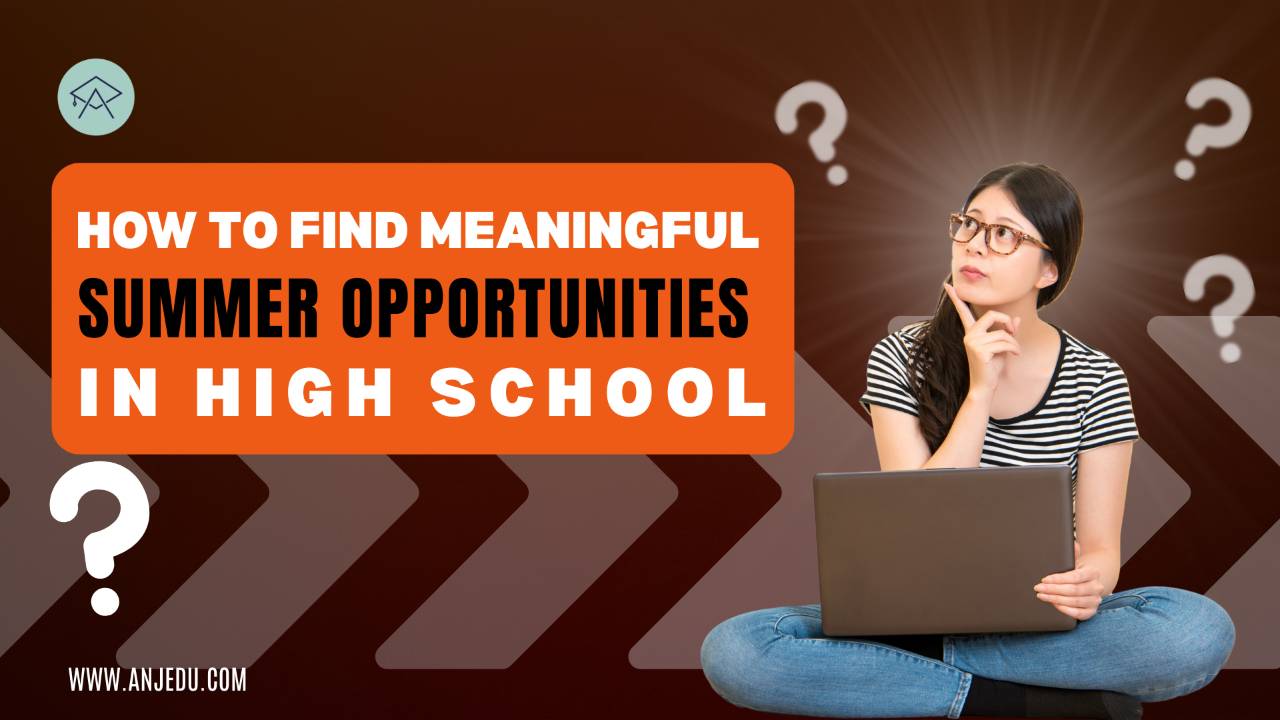How to Find Meaningful Summer Opportunities in High School
Oct 13, 2025
3 Key Takeaways
- Summer can be a time to explore interests, develop skills, and reflect on personal goals.
- Internships, enrichment programs, and volunteering each offer different ways to grow.
- The most meaningful summer opportunities align with a student’s authentic interests.

For high school students in 10th and 11th grade, summer often feels like a much-needed break. But it can also be a meaningful time to pursue interests, contribute to the community, and develop new skills.
Choosing the right summer opportunity depends on each student’s interests, values, and availability. Whether the goal is academic growth, career exploration, or service, there are many ways to make the most of these weeks without adding unnecessary pressure.
Why Summer Matters
Summer can support personal and academic development in ways that complement the school year. With fewer academic demands, students have time to explore:
- Interests outside of the classroom
- Emerging career paths
- New environments and communities
- Creative or independent projects
Colleges often look at how students use their time beyond school. But more importantly, these experiences can help students clarify their goals and better understand themselves.
Three Types of Summer Opportunities
Not all summer activities need to be structured or formal. What matters is that they are intentional and meaningful to the student. Here are three broad categories of opportunities to consider:
1. Internships
Internships allow students to observe or participate in real-world environments, gaining exposure to various fields. These experiences often help students develop soft skills such as time management, communication, and teamwork.
Internships do not need to be high-profile to be valuable. Even short-term or informal roles can offer meaningful insights and help a student assess their interest in a particular area.
2. Enrichment Programs
Academic or creative programs during the summer offer students the chance to study subjects more deeply or explore new topics altogether. These programs can be in-person or virtual, short-term or multi-week.
Some students prefer structured environments with peers, while others gravitate toward independent study or self-led projects. There is no single model that fits everyone.
3. Volunteer Work
Volunteering helps students connect with their communities while developing empathy, leadership, and a sense of responsibility. This kind of engagement encourages students to think about the impact they can have on others and the world around them.
Volunteer experiences can take many forms—helping individuals, working on environmental projects, supporting advocacy efforts, or offering skills-based service. What’s important is consistency and a genuine interest in the cause.
How to Choose the Right Opportunity
Selecting a summer opportunity should start with reflection. The most effective experiences are those that align with the student’s genuine interests, not what others expect or what appears impressive on paper.
Here are a few questions students can ask themselves:
- What subjects or activities do I enjoy and want to explore further?
- Are there skills I would like to develop this summer?
- Do I prefer working independently or in a team setting?
- What kind of environment helps me feel motivated and engaged?
- How much time can I realistically commit?
Summer doesn’t need to be fully packed. Even one meaningful activity, if done with focus and care, can be far more impactful than a list of scattered commitments.
Planning Ahead
For students considering structured programs or internships, planning often needs to begin several months in advance. Many programs have early application deadlines. However, there are also opportunities that arise closer to summer or can be created by reaching out to local organizations, family contacts, or community networks.
Regardless of what a student chooses, keeping a record of their experience can be helpful. Journaling about what they learned, reflecting on challenges, and identifying moments of growth can deepen the impact and support future application writing.
A Balanced Summer
It’s also worth noting that summer is a time for rest and renewal. Students benefit from unstructured time, social connection, and space to recharge. A healthy balance between productivity and downtime supports long-term well-being.
Some students may feel pressure to “do everything.” But a thoughtful, balanced approach—one that centers curiosity, values, and authenticity—often leads to more rewarding outcomes, both personally and academically.
Final Thoughts
There are many ways for 10th and 11th graders to use summer in ways that are meaningful, purposeful, and enjoyable. Whether through internships, enrichment, or service, what matters most is choosing opportunities that reflect the student’s interests and support their growth.
By approaching summer as a time for exploration rather than performance, students can gain not only experiences to mention on college applications, but also insights that guide their future decisions and shape their identity.

